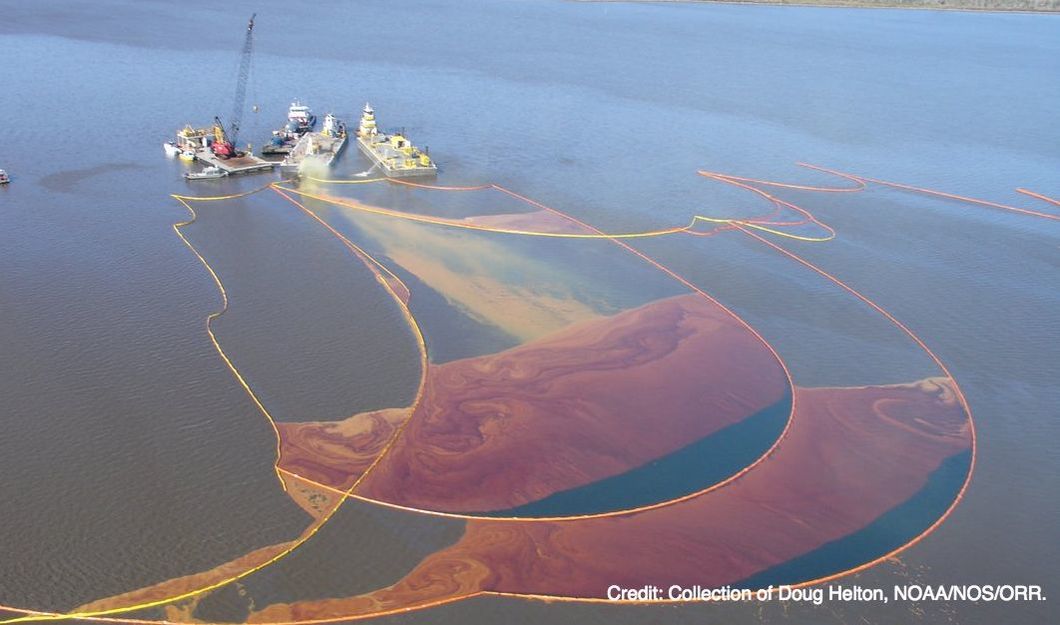|
A new study finds that oil is still present across the Gulf of Mexico seven years after the Deepwater Horizon Oil spill of 2010.
Researchers at the University of South Florida recently published the results of a seven-year study on marine life in the Gulf of Mexico. The study spanned 12 research expeditions, and included data on 15,000 fish, representing 166 species from 343 locations. The goal of the research was to obtain a baseline understanding of marine life in the Gulf to better be able to evaluate the long term impacts of the Deepwater Horizon oil spill of 2010. One key finding was that oil from the spill is still detectable across the gulf and that none of the areas included in the study were oil-free. Fish specimens caught for the study were tested for pollutants like oil and heavy metals, and while oil contamination in the Gulf has declined since the catastrophic spill in 2010, it is still present. "Neither the fish nor oil spills know national boundaries," principal investigator Steve Murawski, Ph.D., professor at the University of South Florida College of Marine Science, told Phys.org. "Providing seamless data for the Gulf as a whole is imperative if we are to prepare adequately for future oil spills." The seven years of research by Dr. Murawski and his colleagues only marks the beginning of improving our understanding of the Gulf of Mexico and the long tern consequences of the spill. They have created an invaluable foundation for future scientists to better evaluate the changing health of the Gulf ecosystem. Learn more about the study at Phys Org and the American Fisheries Society. |
Details
AuthorMarine Defenders is an educational program designed to reduce chronic oil pollution. Archives
February 2019
Categories
All
|

 RSS Feed
RSS Feed